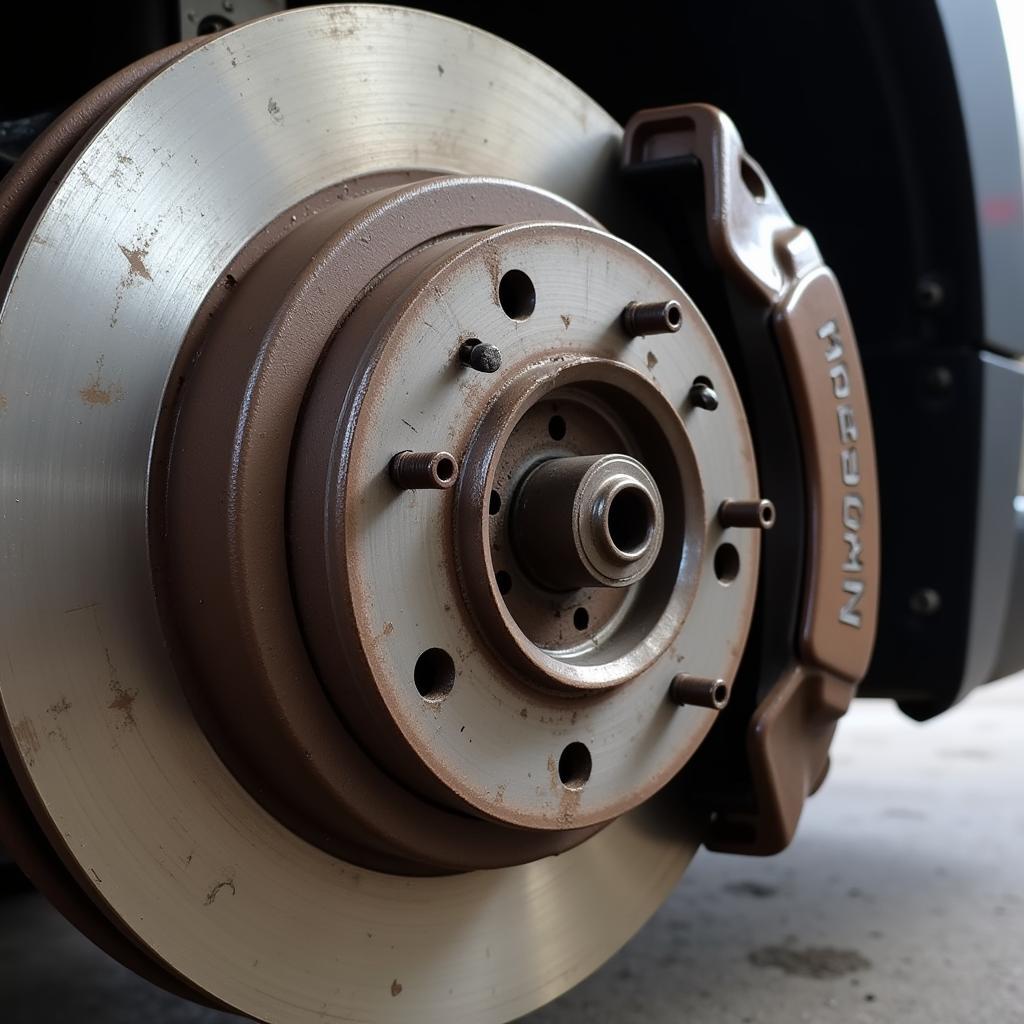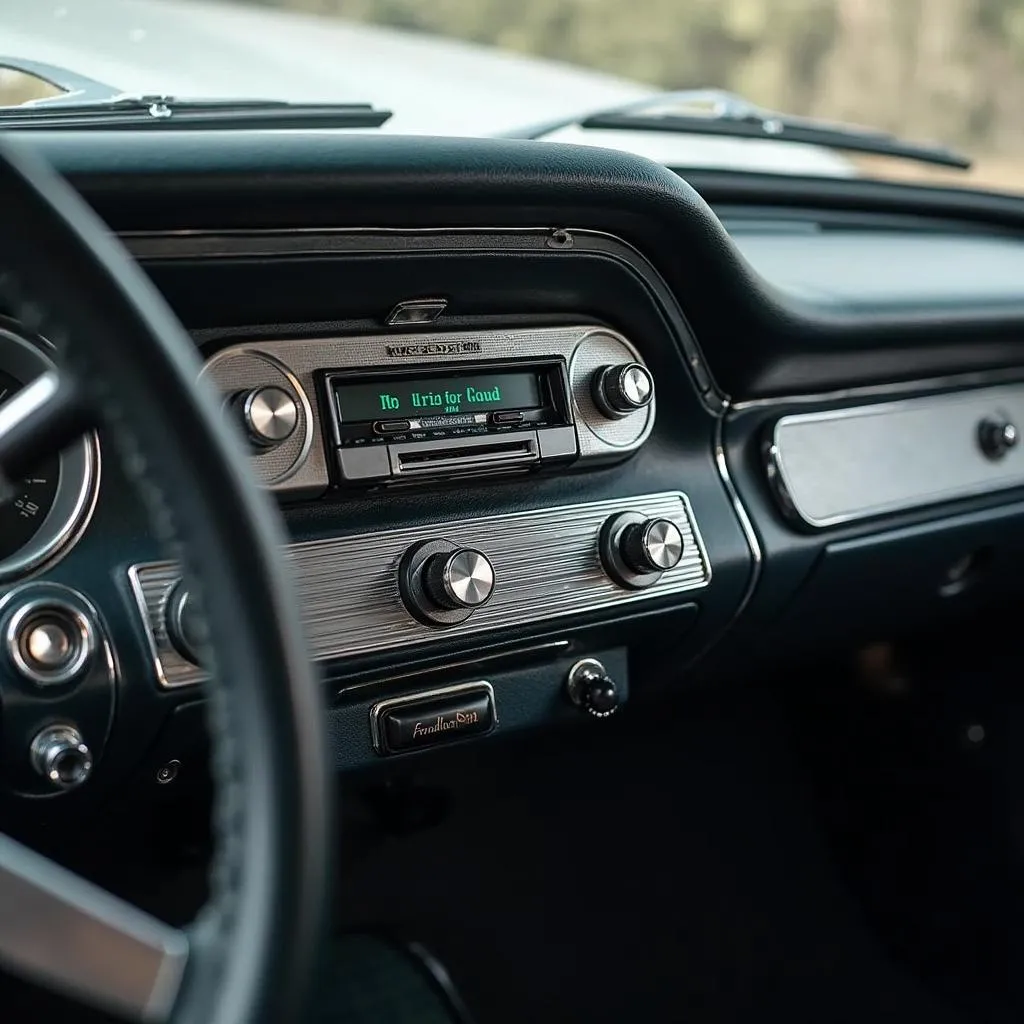The brake warning light on your Mini Countryman’s dashboard is a crucial safety feature, designed to alert you to potential issues within your braking system. Ignoring this light could lead to decreased braking performance and potentially dangerous situations. This comprehensive guide delves into the common causes of a Mini Countryman brake warning light and provides practical solutions to help you address the problem.
Understanding Your Mini Countryman’s Brake System
Your Mini Countryman’s braking system is a complex network of components working together to ensure safe and efficient stopping power. When you press the brake pedal, hydraulic pressure is generated, activating the calipers to clamp the brake pads against the rotors, ultimately slowing down or stopping the vehicle. A fault in any of these components can trigger the brake warning light.
Common Causes of a Mini Countryman Brake Warning Light
Low Brake Fluid Level
One of the most common reasons for the brake warning light to illuminate is a low brake fluid level. Brake fluid is the lifeblood of your braking system, transmitting the force from your foot on the pedal to the wheels. If the fluid level drops, often due to a leak, it can compromise braking performance.
Solution:
- Check the brake fluid reservoir: The reservoir is usually located near the firewall on the driver’s side. Consult your owner’s manual for the exact location.
- Inspect the fluid level: If the fluid is below the “MIN” mark, add the recommended brake fluid (DOT 3 or DOT 4) to the reservoir.
- Inspect for leaks: Carefully examine the brake lines, hoses, and connections for any signs of leakage. If a leak is detected, it’s crucial to have it repaired by a qualified mechanic immediately.
Worn Brake Pads
Brake pads are designed to wear down over time. When they become excessively thin, a sensor embedded within the pad will contact the rotor, triggering the brake warning light. This mechanism ensures you replace your brake pads before they wear down completely and cause damage to the rotors.
Solution:
- Inspect brake pad thickness: You can visually check the brake pad thickness through the wheel spokes. If the pads are significantly thin, it’s time for a replacement.
- Listen for noises: Squealing or grinding noises when braking are also indicators of worn brake pads.
- Schedule a brake pad replacement: It’s recommended to have your brake pads replaced by a professional mechanic, especially if you’re not comfortable working on your vehicle.
 Worn brake pads on a Mini Countryman
Worn brake pads on a Mini Countryman
Faulty ABS Sensor
The Anti-lock Braking System (ABS) is a safety feature that prevents wheel lockup during hard braking, improving vehicle control. ABS sensors monitor wheel speed and relay information to the ABS control module. If a sensor malfunctions, it can disrupt the ABS system and activate the brake warning light.
Solution:
- Retrieve Diagnostic Trouble Codes (DTCs): Connect a diagnostic scanner to your Mini Countryman’s OBD-II port to retrieve any stored fault codes related to the ABS system.
- Inspect ABS sensors and wiring: Visually inspect the ABS sensors and their wiring harnesses for any signs of damage, corrosion, or loose connections.
- Test or replace faulty sensors: Based on the retrieved DTCs and visual inspection, test the ABS sensors using a multimeter or replace any faulty sensors.
Issues with the Brake Master Cylinder
The brake master cylinder plays a vital role in converting the force applied to the brake pedal into hydraulic pressure. If the master cylinder fails internally or develops a leak, it can disrupt the entire braking system and illuminate the warning light.
Solution:
- Check for fluid leaks: Inspect the master cylinder and surrounding areas for any signs of brake fluid leakage.
- Inspect brake pedal feel: A spongy or soft brake pedal can indicate air in the brake lines, potentially caused by a faulty master cylinder.
- Consult a professional mechanic: Diagnosing and repairing a master cylinder requires specialized knowledge and tools. It’s best to consult a qualified mechanic for assistance.
Advanced Diagnostics and Remote Software Solutions
In some cases, the brake warning light may be triggered by electronic malfunctions or software glitches within the vehicle’s control modules. These issues can be more challenging to diagnose and often require specialized equipment and expertise.
“Modern vehicles like the Mini Countryman rely heavily on software and electronic control units. A seemingly simple brake warning light could be a symptom of a deeper software-related issue. Our remote diagnostics and software solutions allow us to access and analyze the vehicle’s data remotely, identifying and resolving issues efficiently and effectively.” – John Miller, Automotive Electrical Engineer
Remote diagnostics and software solutions offer several advantages:
- Faster Diagnosis: Remote access allows technicians to quickly identify the root cause of the issue.
- Convenient Solutions: Software updates and calibrations can often be performed remotely, saving time and effort.
- Reduced Downtime: Addressing software-related problems remotely minimizes the time your vehicle spends in the shop.
Conclusion: Don’t Ignore the Warning
The brake warning light in your Mini Countryman should never be ignored. It serves as a critical safety alert, indicating a potential problem within your braking system. By understanding the common causes and solutions outlined in this guide, you can take the necessary steps to ensure the safety and reliability of your vehicle. Remember, if you’re unsure about any aspect of brake repair, it’s always recommended to consult a qualified mechanic for professional assistance.

